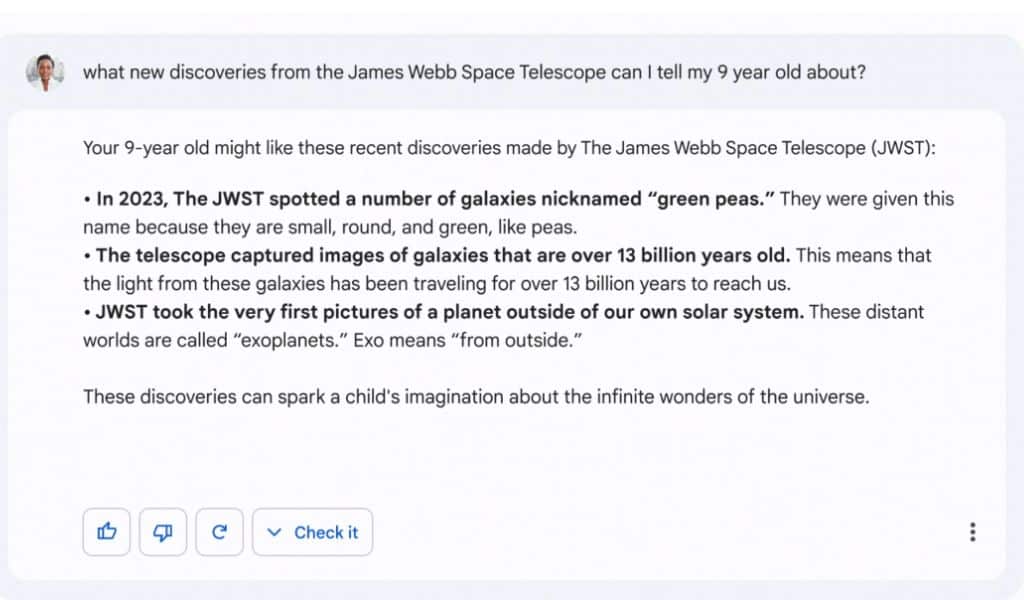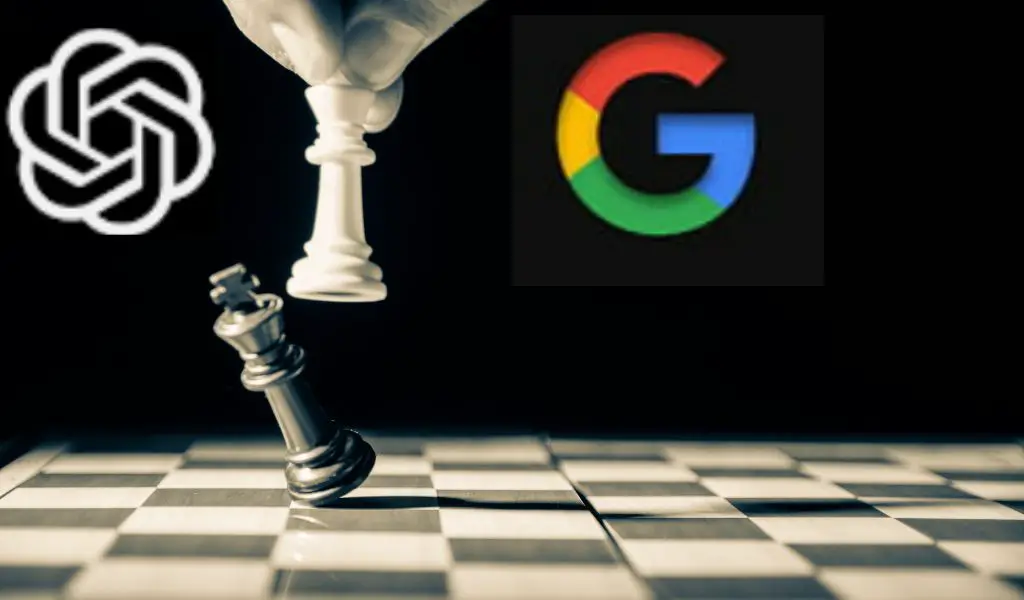Listen to the podcast:
Google is currently testing Bard, its OpenAI ChatGPT competitor. We’ve also had our first look at the AI-powered features that are available in Google Search.
Google CEO Sundar Pichai announced today that a group of “trusted testers” will have early access to the beta version of Bard. He provided several samples to illustrate what this experimental first edition will look like.
Read more: Technological tools to create optimized content
Because Pichai discussed it on Google’s most recent earnings call, we received advance warning that this would occur.
What will Google’s AI-powered search features look like?
Since everyone is interested in seeing how ChatGPT-style AI will work in Google Search, let’s start there.
Take a look at the image that Google gave. Demonstrates how Google Search uses AI to react to long searches with a long AI-produced response:
You can get an idea of how Google will soon be able to integrate AI-generated responses directly into Google Search by looking at this screenshot.
Pichai wrote:
“Soon, you’ll see AI-powered features in Search that pull complex information and multiple perspectives into easy-to-digest formats, so you can quickly understand the big picture and learn more from the web—whether it’s looking for additional perspectives, like blogs from people who play both piano and guitar, or delve into a related topic, as steps to get started as a beginner.”
To further clarify, Bard is not affiliated with Google search in any way. The screenshot you just saw draws attention to AI-powered features that are coming “soon” to Google Search.
What does Bard look like?
Another screenshot provided by Google demonstrates how the company’s standalone ChatGPT-style service, Bard, can react to a question:

“What new discoveries from the James Webb Space Telescope can I tell my 9-year-old son?”
In this particular setting, Bard is speaking to a young boy about recent findings from the James Webb Space Telescope, operated by NASA.
Also read: Microsoft works on an agreement to include ChatGPT in MS Word
As can be seen, this question does not have a single answer that is definitely correct.
What is Google Bard?
According to Google, Bard is a test version of a conversational artificial intelligence service powered by LaMDA (Language Model for Dialogue Applications).
LaMDA is Google’s next-generation language and conversation capability, and was introduced at the Google I/O 2021 keynote. This announcement was made two years ago. It is currently being used to provide consumers with these answers.
According to Google, Bard is powered by a lightweight model version of LaMDA, which requires “much less computing power.” Google has stated that this will allow them to scale to a larger number of people while allowing for a larger amount of feedback.
Furthermore, Pichai wrote:
“Bard seeks to combine the breadth of the world’s knowledge with the power, intelligence and creativity of our great language models. It relies on information from the web to provide fresh, high-quality answers. Bard can be an outlet for creativity and a launching pad for curiosity, helping you explain new discoveries from NASA’s James Webb Space Telescope to a 9-year-old, or learn more about the best forwards in soccer right now. , and then exercise. to develop your skills.”
bard is experimental
Google made it clear that Bard is still in the testing phase and they look forward to the next “testing phase to help us continue to learn and improve the quality and speed of Bard.”
Who are the Trusted Testers?
Google has reported that they are not the ones who rate the quality of searches. Instead, they are a group of people from outside of Google who are diverse in terms of demographics and geographic locations.
The purpose of these testers is to help Google improve its products and better understand the experiences that real consumers are likely to have with these products. Google stated that to carry out this test, they collaborate with a third-party provider.
Also Read: Mobile App Testing
It’s unclear how you and I can test Bard before it’s available to a wider audience.
citations and attribution
When Google was asked how it intends to provide attribution and/or citations for its answers, either from Bard or in search results, the company did not provide a clear answer. At the time this was published, Google did not immediately provide a comment on the matter.
Why do we care?
It is amazing to see how companies that specialize in search and AI are incorporating human-like question and answer responses. Although it is still early days, it seems that Google plans to take a strategy with Bard that is comparable to what they took with ChatGPT. However, since it’s still early days, I anticipate that the user experience and interfaces will change quite a bit in the near future.
An additional intriguing question concerns how Google might treat attribution and citation, particularly in the context of search. Because Google has been using AI for years to develop knowledge panels, the company doesn’t always disclose attribution for some knowledge panels. This is one of the reasons why.
previous reports
As we revealed earlier, Google has started developing its own version of ChatGPT and is also exploring a new search interface that incorporates chat:
“When a question is entered, search results display a gray bubble directly below the search bar, offering more human-like responses than typical search results. Directly below that, the page suggests several follow-up questions related to the first one. Below that, it displays typical search results, including links and the title.
Google’s official response to the news article is as follows:
“We have long focused on developing and deploying AI to improve people’s lives. We believe that AI is a fundamental and transformative technology that is incredibly useful for people, businesses and communities, and as outlined in our AI Principles, we must consider the broader societal impacts these innovations can have. We continue to test our AI technology internally to make sure it is useful and safe, and we look forward to sharing more experiences externally soon.”
What about Microsoft and ChatGPT?
Meanwhile, Microsoft has made significant investments in OpenAI, the company that developed ChatGPT. It has been speculated that Microsoft might incorporate GPT-4 into Bing search in some way in the not too distant future. And we’ve previously seen early screenshots of the Bing UI with the ChatGPT style built into the search feature.
Following the meteoric rise in popularity of OpenAI’s ChatGPT, many companies, particularly those in the search industry, have begun to take these technologies very seriously.

Subscribe to our latest newsletter
To read our exclusive content, sign up now. $5/month, $50/year
Categories: Technology
Source: vtt.edu.vn
